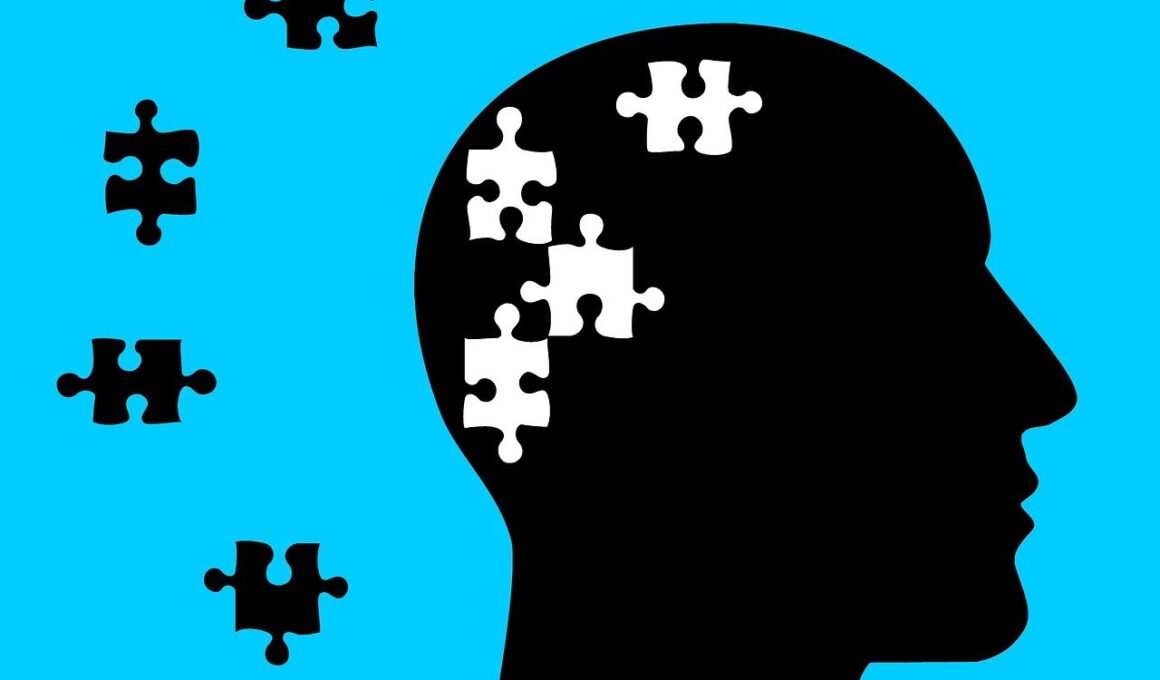How Weight Loss Can Alleviate Symptoms of Depression
Weight loss has been linked to various health benefits, and one of the most significant ones is its potential to alleviate symptoms of depression. Individuals struggling with obesity often experience low self-esteem and negative body image, which can trigger depressive symptoms. By shedding excess pounds, people may find a boost in their self-confidence, thus positively affecting their mental health. Numerous studies have suggested that losing weight not only improves physical health but also enhances overall well-being. As a result, an individual’s mood may become more stable, and they might experience less anxiety. Additionally, weight loss often brings improved sleep quality, which is essential for mental health. The combination of enhanced self-esteem and better sleep leads to a reduction in depressive symptoms. Furthermore, engaging in regular exercise during a weight loss journey releases endorphins, known as ‘feel-good’ hormones. These endorphins can help elevate mood and provide an overall sense of happiness. Therefore, through these various channels, weight loss can serve as an effective strategy to combat depression by promoting both physical and mental health improvements. It is a holistic approach to overall well-being.
In addressing the relationship between weight loss and depression, it’s important to consider the psychological impact of losing weight. Many individuals report feeling a sense of achievement and empowerment when they reach weight loss goals. This sense of accomplishment can challenge negative thought patterns associated with depression. As previously mentioned, self-esteem improves with weight loss. Many who lose weight find new motivation and encouragement to lead healthier lifestyles. This includes engaging in social activities, improving their diet, and increasing physical fitness. These lifestyle changes not only contribute to physical health but also create opportunities for social engagement, which is crucial for those dealing with depression. Emotional support from friends, family, or support groups can further enhance the positive effects of weight loss. It’s beneficial for individuals to surround themselves with encouraging people during their weight loss journey. Another key aspect is the way individuals perceive themselves after losing weight. A positive body image can lead to better mental health outcomes, making them more resilient against depressive episodes. Overall, weight loss can play a significant role in creating a positive feedback loop, fostering improvement in mental health and emotional well-being.
The Role of Nutrition
Nutrition plays a pivotal role in both weight loss and mental health. During the weight loss journey, it is essential to adopt a balanced diet rich in nutrients that support brain health. Foods high in omega-3 fatty acids, such as salmon and walnuts, have been shown to have a positive impact on mood. Similarly, fruits and vegetables provide essential vitamins and minerals that contribute to optimal brain function. Staying hydrated also influences mental health. Dehydration can lead to fatigue and confusion, exacerbating feelings of depression. Moreover, maintaining stable blood sugar levels through a balanced diet can prevent mood swings that often accompany depressive symptoms. Incorporating whole grains, lean proteins, and healthy fats can be beneficial. A well-rounded diet not only supports weight loss efforts but also nourishes the brain, providing it with the necessary elements to maintain a healthy mood. Additionally, avoiding processed foods that are high in sugar and unhealthy fats can prevent fluctuations in mood, which can lead to an unstable emotional state. Therefore, focusing on nutrition provides a dual benefit for individuals aiming for weight loss and mental health improvement.
Exercise is another crucial component that links weight loss with alleviating symptoms of depression. Regular physical activity releases endorphins and serotonin, neurotransmitters that promote feelings of happiness. When individuals engage in consistent workouts, whether it’s a structured gym routine, jogging, or even brisk walking, they trigger chemical reactions in their brains that help lift their mood. Furthermore, exercise can serve as a healthy coping mechanism, allowing individuals to channel their emotions into physical activity rather than unhealthy habits like overeating. Many people find exercise to be meditative; it provides an opportunity to clear one’s mind while focusing on physical wellbeing, which can be particularly beneficial for those dealing with depressive thoughts. Additionally, setting fitness goals provides a sense of structure and purpose, which can further reduce depressive symptoms. Establishing a regular exercise schedule often contributes to creating routine, further fostering a sense of normalcy. These aspects combined make exercise a multifaceted tool for weight loss that simultaneously enhances mental health. Thus, by prioritizing physical activity, individuals can address both their weight loss and depression issues effectively.
Mindfulness and Mental Health
Incorporating mindfulness practices into weight loss strategies may also greatly benefit mental health. Mindfulness involves being fully aware and engaged in the present moment, which can help individuals cultivate a positive relationship with food and their bodies. For many, emotional eating patterns foster unhealthy relationships with food, leading to weight gain and depression. By practicing mindfulness, individuals can learn to recognize their cravings and emotional triggers, thus promoting healthier eating habits. This awareness allows them to take control of their choices, reducing instances of emotional or stress eating. Moreover, mindfulness practices, such as meditation or yoga, have been shown to reduce anxiety and improve mood. These practices can help individuals develop a more compassionate relationship with themselves, which is particularly beneficial for those struggling with low self-esteem linked to body image. Establishing mindfulness in daily routines not only supports weight loss but also aids in creating long-lasting mental health improvements. As individuals become more attuned to their thoughts and feelings, they can better manage stress and emotional turmoil, ultimately fostering resilience against depression. Therefore, including mindfulness practices in weight loss efforts can yield significant mental health benefits.
It’s essential to recognize that weight loss does not guarantee an end to depression; rather, it can serve as one tool in a comprehensive treatment approach. Weight management should be perceived as part of a broader strategy that includes therapy and, in some cases, medication. Cognitive-behavioral therapy (CBT) and other psychotherapeutic interventions can significantly augment the mental health benefits derived from weight loss. Moreover, consulting with a healthcare professional before embarking on a weight loss journey is paramount, especially for individuals struggling with severe depression. Healthcare providers can offer tailored advice and may recommend therapy or support groups to complement weight loss efforts. Combining nutrition, exercise, and mental health strategies in a comprehensive treatment plan can lead to more sustainable results for individuals. It is important to set realistic and achievable weight loss goals, as this fosters a more positive mindset throughout the journey. Emphasizing gradual, manageable changes ensures that individuals feel supported at every step. Therefore, recognizing the multifaceted nature of weight loss and mental health can create pathways for healing and improvement. This holistic approach can significantly enhance overall quality of life.
Conclusion
In conclusion, weight loss can significantly alleviate symptoms of depression. The interconnectedness of physical and mental health means that changes in one can positively influence the other. By improving self-esteem, promoting better sleep, and fostering healthier habits, weight loss presents a viable strategy for addressing depressive symptoms. Individuals are encouraged to consult with healthcare professionals to navigate this journey effectively. A supportive environment, along with a balanced approach that integrates nutrition, exercise, mindfulness, and psychological support, is essential for achieving lasting benefits. Each person’s journey is unique, and understanding that delays or setbacks may occur is crucial. With perseverance and the right support system, individuals can attain not only their weight loss goals but also improved mental health outcomes. As we continue unraveling the complex relationship between obesity and depression, it becomes evident that proactive measures, including weight management strategies, are necessary for holistic health. This understanding will help develop more comprehensive approaches for treating depression through weight loss. Ultimately, prioritizing both physical and mental health can lead to a fulfilling and balanced life.
Research continues to shed light on the vital need for weight management and mental health education. Increasing awareness about the relationship between weight and depression may motivate individuals to seek help for both issues. Community outreach programs can facilitate education on healthy lifestyle changes and promote mental health resources. Encouraging open discussions about mental health in society can help reduce stigma. As public understanding improves, more individuals may feel empowered to reclaim their health. Interventions focusing on both physical and mental well-being will yield the most positive outcomes. Through individual efforts and supportive community systems, achieving a healthy weight can become an attainable goal. This path can lead to improved mental health and quality of life. Collaboration between healthcare providers, mental health professionals, and community organizations plays a key role in fostering holistic health initiatives. Ultimately, adopting an integrated approach is essential for assisting individuals in their journeys toward health. Society can create a more supportive environment for individuals facing weight management challenges by working collectively. The combination of awareness, education, and empathy will pave the way toward long-term health improvements, enabling individuals to thrive mentally and physically.








